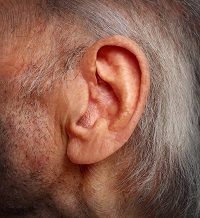Article
Screening Rheumatoid Arthritis Patients for Hearing Impairments is Vital
Author(s):
Researchers recently performed a comprehensive literature review to determine possible pathologies and associated factors, as well as new treatment modalities, for RA patients with auditory deficit.

Rheumatoid arthritis (RA) patients should be screened for hearing impairments, according to study findings released by Bentham Science Publishers.
Researchers from Odense University Hospital in Denmark TK evaluated published clinical reports related to hearing impairment in patients with RA. Additionally, they aimed to determine possible pathologies and associated factors as well as new treatment modalities for RA patients with auditory deficit. The researchers reviewed studies in the Pubmed, Embase, Cochrane and ComDisDome databases for those articles related to the search terms hearing loss, hearing difficulties, hearing disorders, hearing impairment, sensorineural hearing loss, conductive hearing loss, mixed hearing loss, autoimmune hearing loss, drug ototoxicity, drug-induced hearing loss, hearing test, audiometry, auditory dysfunction, and RA.
Patients with RA are at a higher risk for having a hearing impairment compared to healthy subjects over the course of the disease, the researchers extrapolated. The team also reported that the hearing impairment in RA patients appears to be a multifactorial condition, but they were unable to determine the mechanism of the injury and the relative risk factors. Some of the factors include smoking, alcohol and noise, which can all deteriorate hearing abilities, they said. For RA patients more specifically, long term alcohol exposure could affect hearing loss and impact the cochlear function over time.
The researchers estimated that between 25 and 72 percent of all RA patients have some hearing loss, possibly relayed to synovial destruction of incudostapedial and incudomalleolar joints, rheumatoid nodules, auditory neuropathy, destruction of the cochlear hair cells and drug-induced ototoxicity, they explained in a press release.
“Elderly patients and those with long disease duration, active disease, seropositivity, elevated acute phase reactants and rheumatoid nodules are more likely to have hearing impairment,” the study authors added in the statement.
The study authors highlighted the importance of hearing loss treatment in these RA patients, adding that oral steroids, intensifying disease modifying anti rheumatic drugs (DMARDs) and vitamins could produce positive effects. Specifically, they cited vitamin E and anti-oxidants as playing a vital role for inner ear protection, especially in early RA patients.
These patients should be screened with regular audiometric tests and TEOAEs, the authors suggested. Another option for the patients is to cease smoking or alcohol use. But just as with otherwise healthy patients, hearing aids and implantable devices could be useful for the RA patients with hearing impairments.
This is the first study of its kind to examine the relationship between hearing loss and RA, the researchers speculated.





